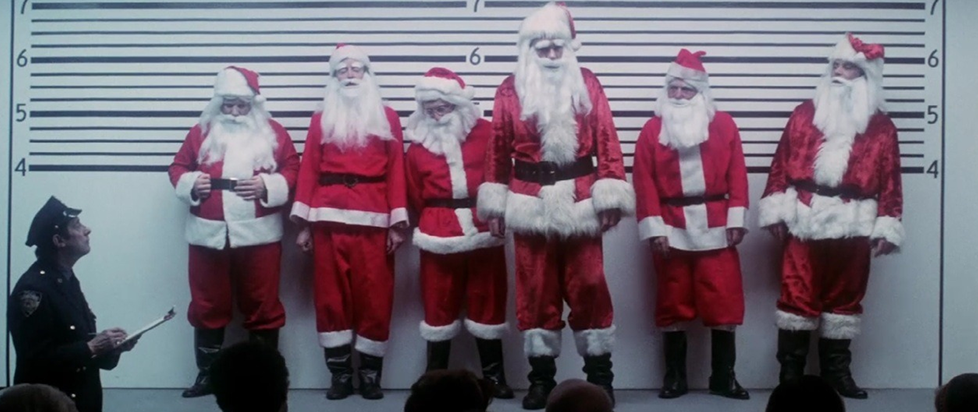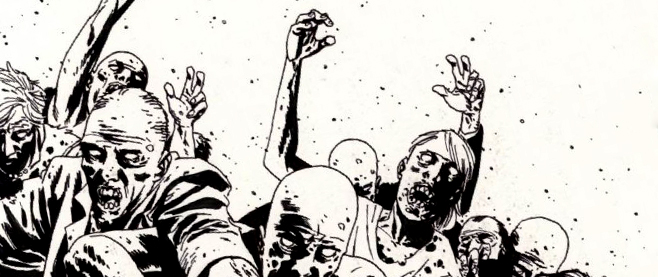
You Better Watch Out
In grade five I counted down the days to my mom’s Christmas party. Usually I anticipated decorating the tree, a joy unavailable in my Jewish household and a captivating act of hanging garbage on a spruce. But that party was supposed to be different. The year prior I found a Santa hat and fake beard, played a game with the other kids, pretending to be Saint Nick. Hearing out holiday wishes and boasting about the video game pile at the north pole. Some brought me cookies from the snack table.
Speaking as a kid who isn’t in his rolodex, who wouldn’t want to be Santa? The diligent, rustic genie who parachutes hobby horsies to children around the planet. My report card arove the night before. My grades tanked over a paper on the digestive system I never wrote. My mother grounded me, saying that I wouldn’t be going to the party, and therefore wouldn’t get to glow in Santa’s adored beard. Not getting to be Santa was devastating.
Now I’m 30 and my understanding is that the holidays are supposed to be a nightmare anyways.
There are no new Rankin Bass specials. Every story about Christmas is a story about terror, wrangling dysfunctional families, fanging tongues through table conversation, murdering people at the mall for cheaper goods. A larf, but we’re all living year after year through the discrepancy between what we believe holidays are supposed to be (loving, giving, drinking) and the practice (shopping online, shopping offline, drinking). Christmas horror movies have their work cut out for them. In the big C cult sector there’s Bob Clark’s very good Black Christmas and Charles Sellier’s very dull Silent Night Deadly Night. But if you want a Santa slasher with something to say, that isn’t capitalizing on cheap cynicism, and is gorgeous, you’re going to need to see Lewis Jackson’s Christmas Evil.
Harry Stadling saw mommy getting cunninlingus from Santa Claus. The trauma sticks with Standling into adulthood, but hasn’t soured him on Kringle. His apartment is decorated with toys and porcelain dolls like J.F. Sebastian’s in Blade Runner. He plays with shaving cream in the mirror to see what he’d look like with fuller whiskers. He’s received a promotion at the Jolly Dreams toy factory, driven to get all the good boys and girls quality gifts. An enthusiasm his bosses look forward to exploiting.
Stadling’s co-workers see a naive grownup who can’t read social cues. Local kids see a friendly shut-in who seems more interested in what they did in school than their teachers. His brother, Phil, who broke the news to him all those years ago that Santa is a myth, sees a man who might be broken beyond repair, and worries constantly whenever something seems amiss.
Phil doesn’t know he lives in a horror movie, but if he did he’d know his fears are justified. Harry has been spying on the local kids, documenting if they have been behaving naughty or nice. Moss Garcia has been keeping a Penthouse under his bed, frustrating Stadlind. The film chronicles Stadling’s unnerving stalking of Garcia before Christmas Eve, but all the tension and eeriness culminates in a wrapped box of coal.
Stadling only intends to murder his bosses. The American dream.

Harry Stadling loves the holidays, but isn’t in love with reality, where holidays are not. In the holidays people get to spend time with their loved ones, are motivated to give unselfishly and watch the community pool into a harmony of love. In reality, Stadling is duped into doing overtime, Jolly Dreams’ toy drive is little more than PR and people just watch Christmas specials on TV. In a horror movie, what sticks out about Harry Stadling is that his Santa isn’t merely from the North Pole, he’s from wherever Christmas is better. Unmarred by the consumerism and capitalism that has made the entire concept just another sales blitz.
Even though it’s his murdering gettup, Stadling looks less intimidating dressed like Santa. Star Brandon Maggart does a great job of selling a fur trimmed red fat suit as his natural skin. As the film goes on, and Stadling keeps going too far, it becomes harder to tell if we’ve left reality as well. Going to the place where holidays are. Christmas lights glow brighter and clearer. The sound of bells becomes omnipresent. Stadling stumbles into a beerhall holiday bash, where the awkward Harry courts a crowd, dancing perfectly as police outside seek him for a triple homicide.
Stadling feels less like a Krampus and more like Frankenstein’s monster. There is a confrontation between him and a mob. A shield of children form, going so far as to swipe a knife at their own parent. It’s difficult to tell if they are protecting a man they truly believe to be Santa, or the local oddball they know is trying. Maybe they were kids like me, who believed the deteriorating world could use a few more Santas.
Christmas Evil is Jackson’s only commercial film. Before it, he was a production manager on porn films. The whole film has a legion hall-chic. Its sentimentality act like a guiding star. In an interview with Brian Albright for the book Regional Horror Films, Jackson said he started collecting any Christmas junk he saw after coming up with the story, skipping the need for an art director to achieve Stadling’s startling apartment. They also filmed during the actual holidays, capturing genuine snowbanks, overblown decorations, and the 30 Rock tree lighting. “I wanted that feeling,” Jackson told Albright, “I wanted perfection.”
“I made it on the cusp before Reagan got elected,” Jackson told Albright, “I could just envision what was happening with unions and working people and the dismissal of quality. I just saw it all happening. And it became the reality.”
People are crazy about Christmas the same way Stadling is crazy about it, there’s just fewer murders. People do want a perfect, idealistic, Thomas Kinkade week with their closest friends. People will drive themselves to the edge to fail in that mission. The commercial world has convinced people of this, and the commercial work has convinced them the failures are all their own, or a lack of the right kitchen appliance.




